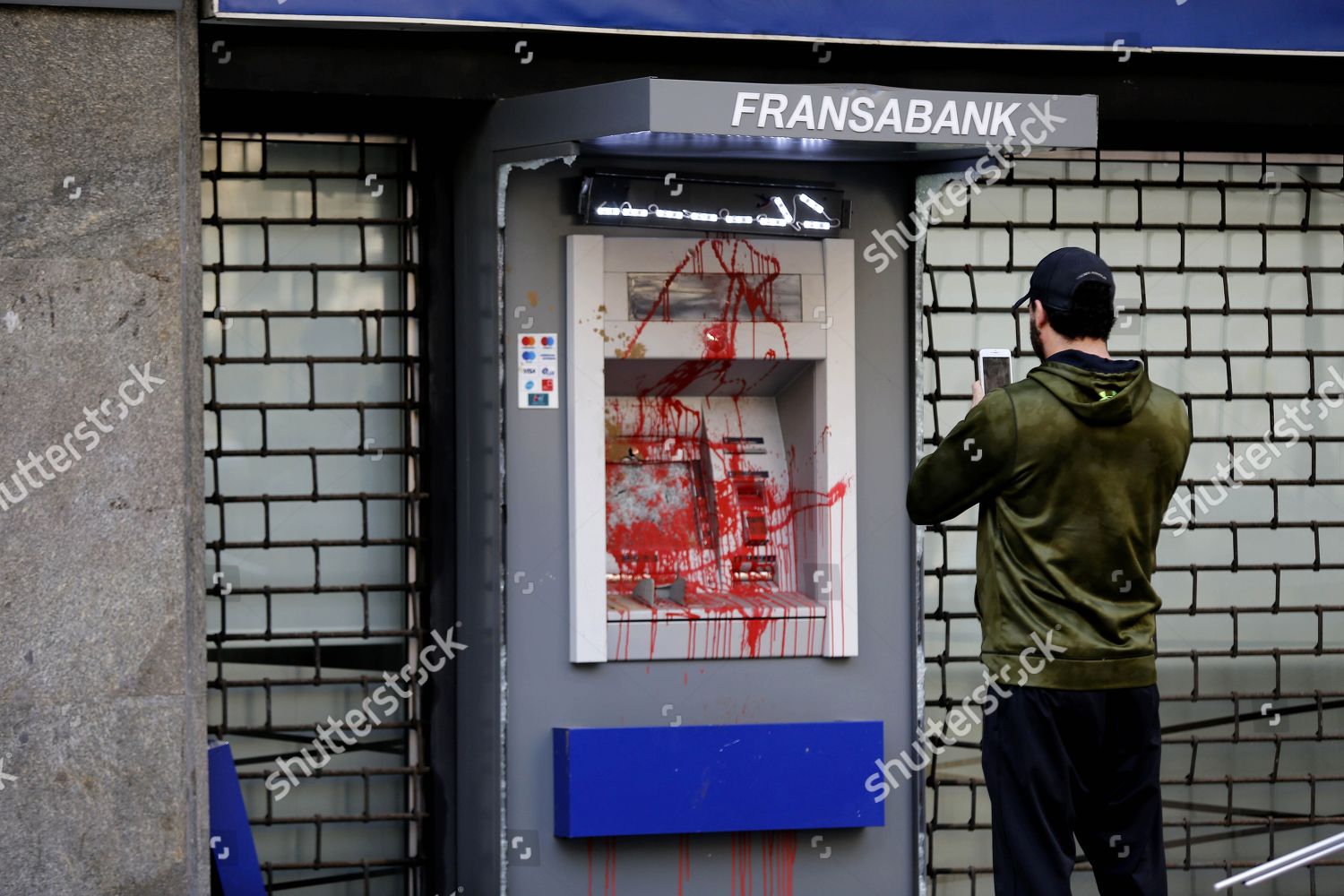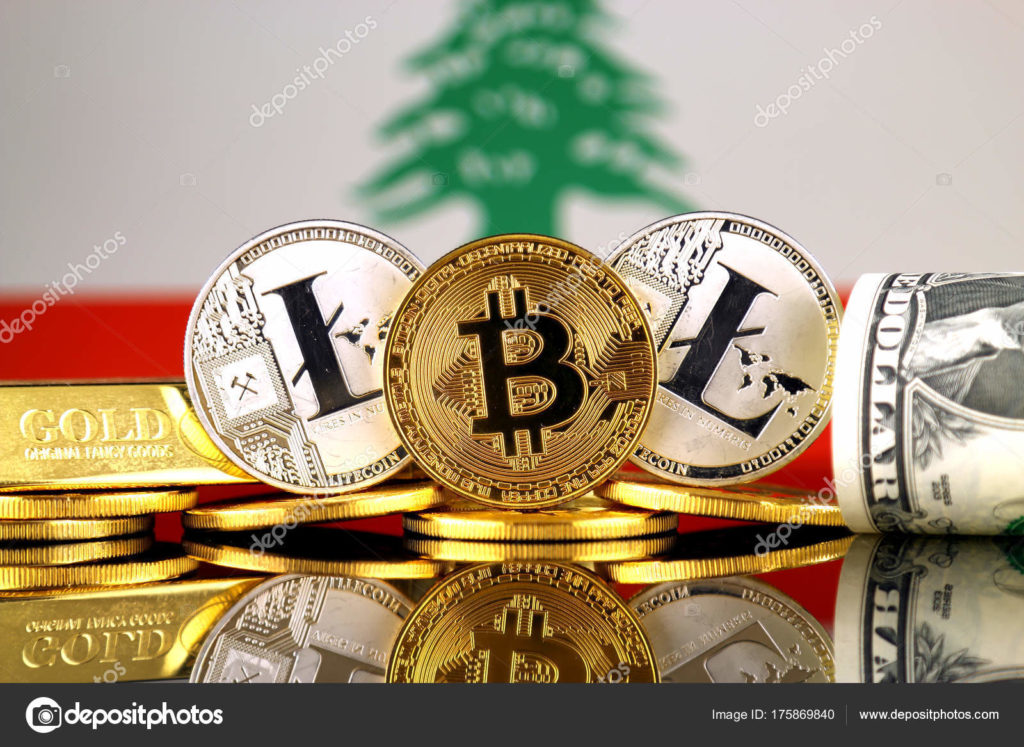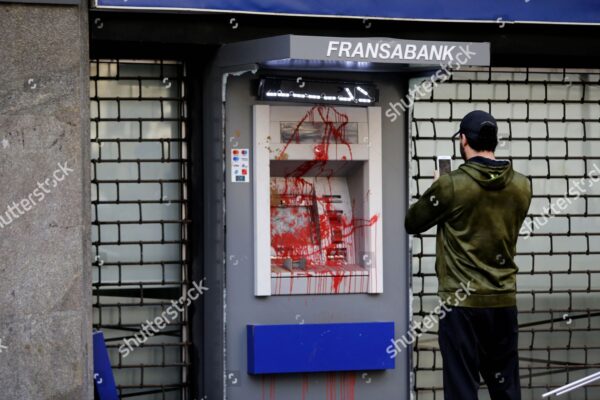
Beirut, Lebanon – When Maher, an engineer in his mid-30s, returned to Lebanon flush with cash from working in the Gulf, he deposited his hard-earned savings in a bank – believing they would be safe.
But as Lebanon has spiralled into its worst economic crisis in decades, banks have imposed informal capital controls that force people to withdraw their savings in Lebanese pounds at the official exchange rate that effectively values their savings at 40 percent less than what its worth on the parallel market.
“Nothing can prepare you for the shock of this,” Maher told Al Jazeera.
But Maher, who asked his surname be withheld to protect his privacy, is not standing by helplessly. He is trying to move what is left of his savings out of Lebanon via a financial instrument many in the country have not embraced – until recently.
“Suddenly everything turns upside down and all the options are open,” said Maher.

With confidence in Lebanese banks at an all-time low over increasing restrictions on foreign currency movements, more Lebanese are turning to digital currencies like bitcoin as a way to shift their money in and out of the country.
“Right now, Lebanese are interested in escaping tight restrictions on cash withdrawals and transfers. They basically want financial freedom,” 29-year old Mahmoud Dgheim, who has traded bitcoin since 2015, told Al Jazeera. “If you want to go around the banking system, bitcoin is a solution.”
Bitcoin – the first and most well-known cryptocurrency – is neither issued nor controlled by any government or financial entity. Rather than go through a bank or another middleman, transactions made in bitcoin are peer-to-peer, anonymous and verified by a centralised global network of computers.
Since its launch over a decade ago, bitcoin has gained legions of converts around the globe who use it to buy everything from hotel bookings, to cars, laptops and furniture.
But it never really took off in Lebanon where central bank restrictions on purchasing bitcoin with Lebanese credit cards, glacial internet speeds and unreliable electricity have acted as serious impediments to adoption.
Risk aversion is another reason Lebanese have steered clear. Bitcoin is famously volatile, whereas the Lebanese pound has long been pegged to the dollar, with which it was used interchangeably.
But faith in the stability of the Lebanese pound has been badly shaken recently.
Lebanese Banks began imposing increasingly restrictive informal capital controls after a popular uprising first swept the country more than four months ago.
Foreign currency withdrawals are now limited to between $50 and just a few hundred dollars a month. Transfers abroad were recently capped at $50,000 a year for so-called “necessary matters”.
Fears that the Lebanese banking system, and indeed the entire heavily indebted Lebanese state, could collapse have led many to invest their cash in assets rather than keep it in the banks. They have bought gold, jewellery, cars, real estate and, increasingly, bitcoin.
Seven Lebanese bitcoin traders said in interviews with Al Jazeera that the volume of their trade had spiked since November, when capital controls were first introduced, with the value of transactions collectively reaching millions of dollars a month.
“It started slow but now, it’s going exponential,” Simon Tadros, a 33-year-old bitcoin trader who is also the chief technology officer of web development firm cnepho.com, told Al Jazeera.
“Before the uprising, bitcoin gave me supplementary income, but now, it’s definitely become the primary,” Omar Debian, a 24-year old Beirut-based bitcoin trader told Al Jazeera.
Making the transaction
Moving money out of Lebanon via bitcoin often begins with pairing buyers who want to convert foreign exchange or other hard assets into the cryptocurrency, with sellers who have a surplus of bitcoin.
The sellers profit from the transaction by charging a commission- typically between 1 percent and 5 percent of the total value of the hard asset being exchanged.
Most of these transactions happen by referral, Tadros says. “It’s a small community but there are lots of scammers around, so we try to keep things close, verify and establish trust between people.”
Some buyers and sellers meet through groups on popular messaging apps like WhatsApp.
In one such group, participants regularly post offerings anywhere between hundreds of dollars worth of bitcoin, to hundreds of thousands of dollars worth. Houses, cars and phones have also been put up for sale in the cryptocurrency on that single group of more than 250 members.
Once a buyer and seller are matched, there are two commonly used avenues for completing the transaction.
The first and simplest involves meeting in person and exchanging physical cash for a bitcoin transfer, a method referred to as ‘over-the-counter’ or OTC.
“Basically, this means we meet up in a Starbucks, he gives me the [physical] money, and right there, I transfer him the bitcoin,” Tadros explained.
Debian said that one of his customers liquidated their assets in Lebanon and bought hundreds of thousands of dollars worth of bitcoin in cash, in order to transfer that wealth to Germany.
A second popular method for transacting involves buyers handing sellers a physical banker’s cheque verified by Lebanon’s central bank. These banker’s cheques can only be deposited in another Lebanese bank. Once the seller takes possession, they transfer bitcoin to the buyer.
Sellers charge a steep commission on this type of transaction – 25 to 40 percent – because the money they receive remains tied up in a Lebanese bank that could potentially collapse or impose even tighter capital controls. They also assume a normal exchange rate risk.
“I’m basically hedging that I’ll still make a profit and the dollar won’t devalue by more than 40 percent,” a bitcoin trader said on condition of anonymity.
For buyers though, the steep commission can be worth it given their only alternative for moving money out of Lebanon is converting their savings at the official exchange rate of 1,500 – which values the Lebanese pound at 40 percent less than the parallel exchange rate of 2,500.
Making the transaction
Moving money out of Lebanon via bitcoin often begins with pairing buyers who want to convert foreign exchange or other hard assets into the cryptocurrency, with sellers who have a surplus of bitcoin.
The sellers profit from the transaction by charging a commission- typically between 1 percent and 5 percent of the total value of the hard asset being exchanged.
Most of these transactions happen by referral, Tadros says. “It’s a small community but there are lots of scammers around, so we try to keep things close, verify and establish trust between people.”
Some buyers and sellers meet through groups on popular messaging apps like WhatsApp.
In one such group, participants regularly post offerings anywhere between hundreds of dollars worth of bitcoin, to hundreds of thousands of dollars worth. Houses, cars and phones have also been put up for sale in the cryptocurrency on that single group of more than 250 members.
Once a buyer and seller are matched, there are two commonly used avenues for completing the transaction.
The first and simplest involves meeting in person and exchanging physical cash for a bitcoin transfer, a method referred to as ‘over-the-counter’ or OTC.
“Basically, this means we meet up in a Starbucks, he gives me the [physical] money, and right there, I transfer him the bitcoin,” Tadros explained.
Debian said that one of his customers liquidated their assets in Lebanon and bought hundreds of thousands of dollars worth of bitcoin in cash, in order to transfer that wealth to Germany.
A second popular method for transacting involves buyers handing sellers a physical banker’s cheque verified by Lebanon’s central bank. These banker’s cheques can only be deposited in another Lebanese bank. Once the seller takes possession, they transfer bitcoin to the buyer.
Sellers charge a steep commission on this type of transaction – 25 to 40 percent – because the money they receive remains tied up in a Lebanese bank that could potentially collapse or impose even tighter capital controls. They also assume a normal exchange rate risk.
“I’m basically hedging that I’ll still make a profit and the dollar won’t devalue by more than 40 percent,” a bitcoin trader said on condition of anonymity.
For buyers though, the steep commission can be worth it given their only alternative for moving money out of Lebanon is converting their savings at the official exchange rate of 1,500 – which values the Lebanese pound at 40 percent less than the parallel exchange rate of 2,500.
Making the transaction
Moving money out of Lebanon via bitcoin often begins with pairing buyers who want to convert foreign exchange or other hard assets into the cryptocurrency, with sellers who have a surplus of bitcoin.
The sellers profit from the transaction by charging a commission- typically between 1 percent and 5 percent of the total value of the hard asset being exchanged.
Most of these transactions happen by referral, Tadros says. “It’s a small community but there are lots of scammers around, so we try to keep things close, verify and establish trust between people.”
Some buyers and sellers meet through groups on popular messaging apps like WhatsApp.
In one such group, participants regularly post offerings anywhere between hundreds of dollars worth of bitcoin, to hundreds of thousands of dollars worth. Houses, cars and phones have also been put up for sale in the cryptocurrency on that single group of more than 250 members.
Once a buyer and seller are matched, there are two commonly used avenues for completing the transaction.
The first and simplest involves meeting in person and exchanging physical cash for a bitcoin transfer, a method referred to as ‘over-the-counter’ or OTC.
“Basically, this means we meet up in a Starbucks, he gives me the [physical] money, and right there, I transfer him the bitcoin,” Tadros explained.
Debian said that one of his customers liquidated their assets in Lebanon and bought hundreds of thousands of dollars worth of bitcoin in cash, in order to transfer that wealth to Germany.
A second popular method for transacting involves buyers handing sellers a physical banker’s cheque verified by Lebanon’s central bank. These banker’s cheques can only be deposited in another Lebanese bank. Once the seller takes possession, they transfer bitcoin to the buyer.
Sellers charge a steep commission on this type of transaction – 25 to 40 percent – because the money they receive remains tied up in a Lebanese bank that could potentially collapse or impose even tighter capital controls. They also assume a normal exchange rate risk.
“I’m basically hedging that I’ll still make a profit and the dollar won’t devalue by more than 40 percent,” a bitcoin trader said on condition of anonymity.
For buyers though, the steep commission can be worth it given their only alternative for moving money out of Lebanon is converting their savings at the official exchange rate of 1,500 – which values the Lebanese pound at 40 percent less than the parallel exchange rate of 2,500.
‘It puts your mind at ease’
Many Lebanese banks have allowed customers who put new money in the bank, either in cash or via transfer from outside Lebanon, to open so-called “fresh money” accounts that are not subject to capital controls.
In theory, this allows customers all the ease of transferring money that makes bitcoin attractive. But trust in banks has been so eroded that many fear new restrictions could be imposed at any moment, barring their access to even fresh money.
“We distrust the banking system, so we just don’t use it at all any more,” the founder of a Lebanon-based tech company with about a dozen employees told Al Jazeera.
The founder, who spoke on condition of anonymity, said they transfer about $30,000 worth of bitcoin into Lebanon every month to pay employees. The bitcoin is bought from a foreign account and then sold “over-the-counter” in Lebanon to established buyers.
“Some people need to get money out, others need to get money in, when we find each other we match,” the founder said. “Over time, we’ve developed stable relationships.”
Bitcoin is also attractive because large sums can be transferred within just a few minutes, while waiting periods for bank transfers can top a week, Debian says.
“Fresh money takes at least a week to 10 days to be transferred, and that’s if it’s sent. Meanwhile, I can transfer bitcoin in $100,000 batches in less than 30 minutes. It puts your mind at ease.”
A 28-year-old bitcoin trader who goes by CryptoLira on Twitter told Al Jazeera that in addition to Lebanese, wealthy Arabs with investments in Lebanon are also turning to bitcoin. The trader manages large Middle Eastern accounts.
“They just want to get their money out of Lebanon – we’re talking really large sums,” he said, adding that they were doing so using the banker’s cheque method, incurring significant losses.
A volatile currency for volatile times
Bitcoin has had significant ups and downs since it was launched, hitting a peak of around $20,000 in 2017 before crashing to just a few thousand. It currently sits around $9,650.
But CryptoLira said the cryptocurrency is still a smart investment in Lebanon, given the country’s uncertain financial outlook.
“When people talk about the volatility of bitcoin it’s important to remember how volatile currency can be, too – I mean, just look at the Lebanese lira [pound],” he said.
“Yes, bitcoin is volatile but it’s volatile on the up, it’s one of the best-performing assets in the world.”
This is true for 2019. The Financial Times reported earlier this month that dedicated cryptocurrency investment funds brought in returns of more than 16 percent in 2019, while traditional hedge fund strategies yielded just 10.4 percent.
However, go back a few years and the volatility of the digital currency led many who bought in the leadup to the 2017 peak, or even in 2018, to lose large sums.
Still, the inherent anarchy of bitcoin makes it irresistible for many Lebanese living through the country’s unprecedented anti-establishment uprising.
“If you’re fighting for a world where bitcoin is a main currency, you’re fighting for the end of all governments,” CryptoLira said. “We had the separation of church and state – today, bitcoin is working towards the separation of money and state.”
Tadros agrees. “Bitcoin is protected by mathematics, fiat [traditional] currencies are protected by governments. Which do you trust?”
SOURCE: AL JAZEERA NEWS


Leave a Reply
You must be logged in to post a comment.